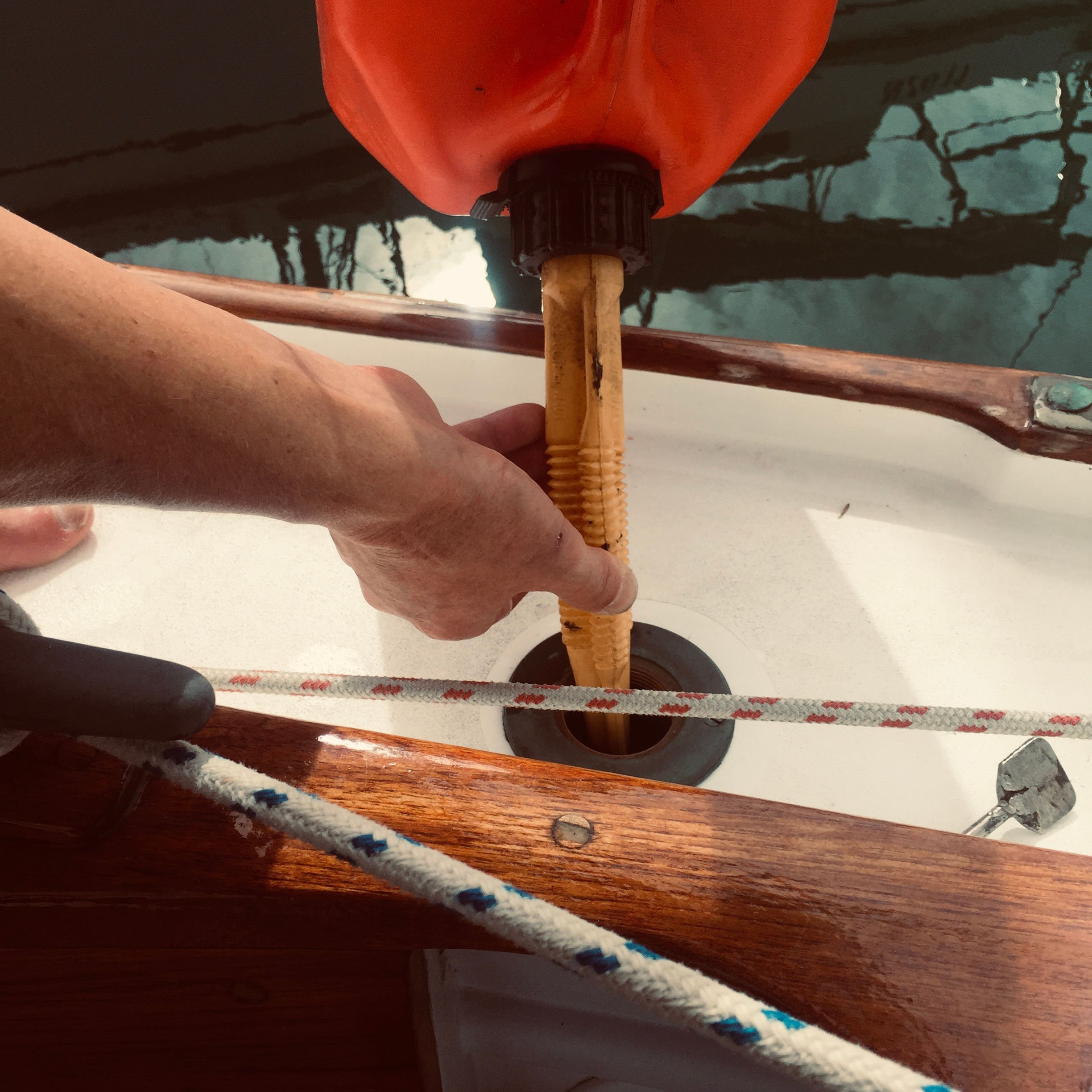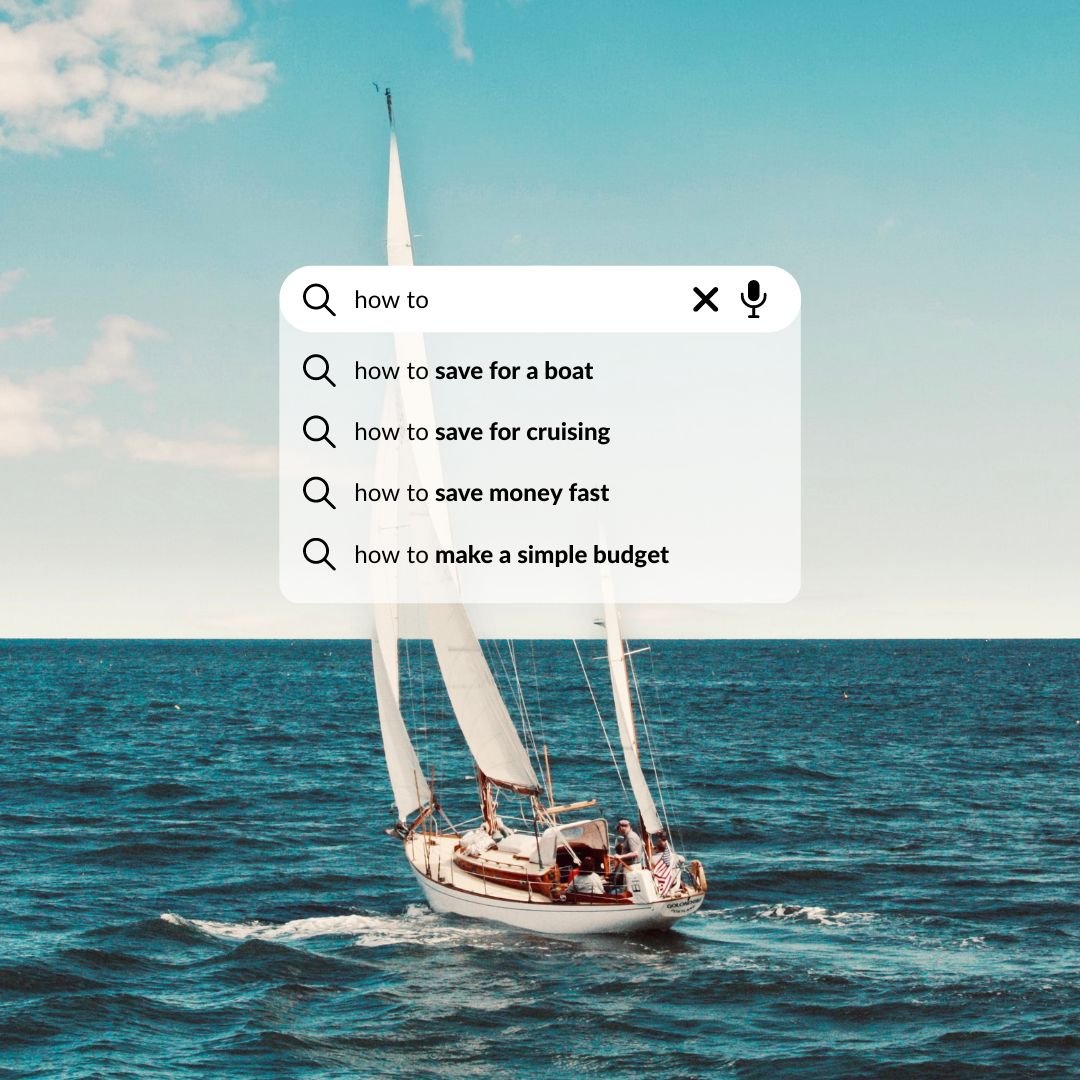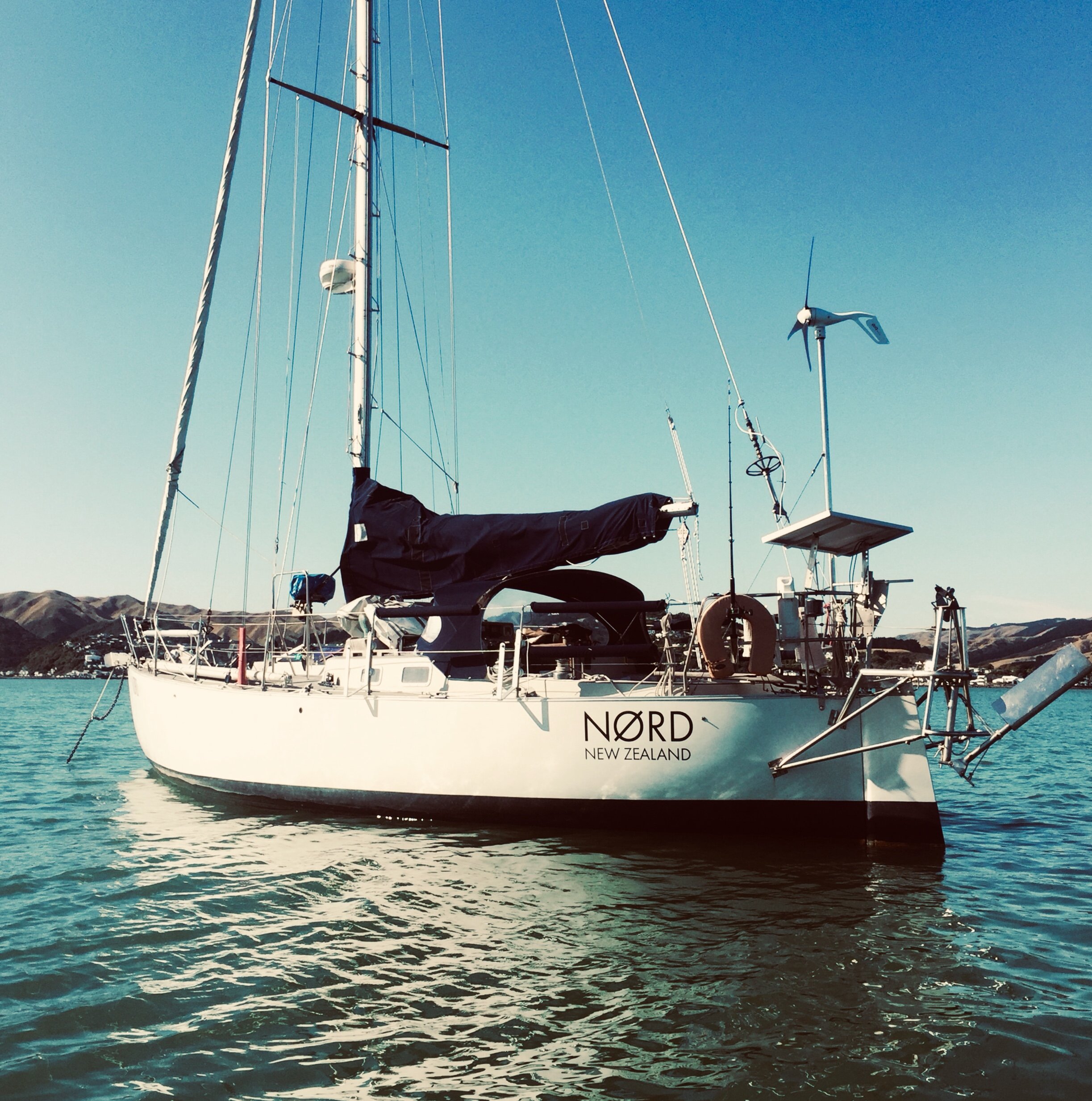Buying Your First Boat: Are These Costs In Your Budget?
Saltwater Journal is reader supported.
When you buy through our links we may earn an affiliate commission (at no extra cost to you)
Found your dream boat and wondering if you can afford it? For most of us, buying a boat is a serious investment and financial commitment. Everyone’s money situation is different but whatever your budget, one of the first questions is ‘How much is it going to cost you?’. After all, you’re working hard to get the funds and start life aboard. You want to know realistically what the expenses are. And you don’t want to be caught short by things you hadn’t thought about, or end up stressing because your boat maintenance is much more than you thought it would be, right?
In other words — you’ll feel much better if you’re prepared and have a realistic budget set for buying and maintaining your boat.
This article will cover common costs of boat ownership, so that you can be more confident researching, and taking the next steps.
Note: The following expenses vary from country to country, so you’ll need to check local pricing and calculate the specifics, based on the boat type and size you’re looking to buy.
So, what boating costs should you budget for? Here’s 13 to know about:
Marine VHF and boating safety courses
If you’re new to boating, you must learn how to operate a marine radio, navigation and rules of the sea. I recommend doing a Marine VHF/SRC and boating safety course and gaining boating experience before you buy your own boat (although I confess we bought our yacht first, then quickly played catch up before we hit the water!) Some States require you have a boating licence to operate a vessel.
A yacht being lifted for a comprehensive survey
An electrical survey will check the quality of installation
Pre-purchase surveys
A survey is usually required by insurance providers, banks or finance companies (if you’re taking a loan) who want to determine the vessel condition, its current market value, and if it’s a good risk, before you buy the boat.
It can feel difficult to fork out money on a survey when the boat looks fine to you! But a good qualified marine surveyor will give you the reality of the boat’s condition and alert you to any major issues, or expenses that you can expect. They’ll deal with the facts of the vessel condition so you feel confident that you’re buying a boat you’re happy with. If there’s serious issues in the survey, you can walk away from the sale, and find another boat more suited to what you want. A survey can save you a lot of money in the long-run.
Three types of pre-purchase surveys:
There are several surveys you can have done. I highly recommend doing the three surveys below, as together, they build an accurate picture about the condition of the vessel and potential costs — before you buy it.
1. A comprehensive Condition and Valuation (C&V) survey
This inspection covers testing of all systems and equipment and a sea trial. It also includes an out of water inspection. This means the boat is lifted for the surveyor to inspect the integrity of the yacht hull, keel, rudder and through-hull fittings. You can expect a detailed written report from the surveyor. Surveyors do vary in price and experience, so do search online or talk to other boaties for recommendations for someone qualified with a great reputation.
2. Electrical survey
There’s two very good reasons for having your electrics inspected by a marine electrician.
Safety
Understandably, there’s a lot of DIY in the boating world – ‘A mate helped me sort this’ or ‘I Googled it’ but sometimes what’s been done isn’t best practice. In these situations, onboard electronics can quickly become a bird's nest of poor connections, improperly crimped wires, or systems not fused properly — and these will need fixing.
Paying an independent marine electrician to assess the safety and condition of the current set up, is a worthwhile investment. More than one boat has been found to have a serious issue and accident waiting to happen!
Expense
Updating or repairing wiring or onboard electrics can be a surprisingly expensive task. A marine electrician can give you an approximate cost for any immediate or future work you may want to have done, so you can factor this into your price offer and budget. If you’re plugging into shore power in a marina, your vessel may be required to have an Electrical Warrant of Fitness (or equivalent) to verify that your vessel power setup is safe.
3. Engine survey
The engine is one of the most expensive and vital parts of your boat, so it makes good sense to have this carefully inspected and tested by a marine mechanic. They’ll do a thorough engine test, running this under different loads and take samples of fluid and oil for analysis. All of this gives vital signs to the engine condition, efficiency and potential issues.
Important: Surveyors aren’t clairvoyants! So while a good one will give you an accurate assessment of what they can physically see or find on that day — there’s no 100% guarantee in life that something won’t go wrong tomorrow (and occasionally something will be missed). But for the most part surveys are an essential part of getting the boat properly checked out.
Insurance
Vessel insurance is a hotly debated topic among cruisers — some people have no cover and take their chances, others are covered for public liability only, and others have full-cover. You’ll have your own preferences but I highly recommend using an insurance broker and/or getting a number of quotes for different packages in order to get the best cover and price. This will be a regular monthly/annual cost to include in your budget.
Most marinas around the world require your vessel to have a minimum of third-party liability insurance if you want to visit. That means, if you damage a million dollar boat trying to dock in a tricky crosswind — you’ll be covered!
Personally — we have full vessel replacement cover for an agreed value, for coastal cruising in New Zealand. (Offshore insurance is another kettle of fish). Because we live aboard, and the yacht’s our largest asset (a depreciating one at that), we want peace of mind that we’ll be covered if something serious did happen (touch wood it doesn’t).
It’s a priority to ensure there’s a suitable lifejacket onboard to fit each crew member
Safety gear
Check what safety gear comes with the boat, and whether it’s in date/service. Although the surveyor will also include this in their report, you’ll need to consider replacing or buying these safety items:
Suitable lifejackets (coastal/offshore etc) in correct sizing for every person onboard (Here’s an easy guide to picking the right kind of PFD)
In-date flares
EPIRB (emergency position-indicating radio beacon)
Life-raft (depending on the type of sailing you’ll be doing)
Suitable wet weather gear
Hand-held VHF radio
Read Survival at Sea: What to pack in your grab bag
Sometimes it’s convenient to live aboard near a city
Mooring/berthage/liveaboard fees
Depending on work/life commitments and where you’ll be sailing, you may start out living in a marina while you get to know the boat, undertake boat jobs, work locally or live-aboard while you save for your next adventures. Investigate mooring and berthing costs as well as any additional live-aboard fees (and if this includes power, water, showers, and holding tank pump out) — so you know the total cost for being in the marina.
Sailing clubs are a great way to meet people and learn to sail
Sailing club membership
There may be a local sailing or Marina club that you wish to join in order to meet people, learn to sail, and take part in sailing activities. Check out what’s nearby and their joining fees.
Coastguard membership
In New Zealand, you can pay an annual fee to become a member of the Coastguard. This funding helps support their operation, and gives boaties free call outs or reduced fees, should they require assistance at sea. It’s not a huge yearly contribution, but it’s a worthy cause to support. Check if there’s an emergency or rescue service you can join near to you.
Learning to do a bit of elbow grease yourself will save you money
Maintenance
There’s a sailor’s saying “A boat is a hole in the water you throw money into”. Unfortunately, it’s pretty accurate but fortunately — it’s all worth it!
The general rule of thumb is to budget 10% of your boat value annually to spend on ongoing maintenance.
Some years may be higher (for example if your rigging needs replacing, or you buy a new mainsail) but other years may be slightly less. On average 10% works out about right.
You’ll need to decide how much you want to pay someone else to do your maintenance, or how much you’re willing to ‘muck in’ and learn to do things yourself. Cleaning winches, fixing toilets, and replacing engine filters with an oil change are all examples of regular jobs onboard.
Note: Upgrading gear and serious boat improvements are additional expenses.
Protective gear on, ready to apply new antifoul
Doing your own basic maintenance can save you money
Haul-out and regular antifouling
Arguably this could be an expense under ongoing maintenance, but I think it’s important to highlight this one. There’s different types of antifouling paint, but most average cruising yachts have their hull repainted every two years. This means having the yacht put on the hardstand, while the bottom is scraped/sanded clean and new paint applied.
Anodes on the hull and propellor are also replaced regularly (these are sacrificial metal lumps attached to the boat hull to prevent galvanic corrosion).
Lift outs by marine yards usually charge by meter length, and of course the size of your hull will determine how much antifoul paint you need — so the bigger the boat, the more expensive it is. Learning to clean the bottom and apply your own antifoul can save you money.
How much sailing will you do? Budget for topping up diesel tanks
Wind generators help keep fuel costs down and power boat systems
Fuel
While hopefully you’ll be making good use of the free wind available to a sailing yacht, you’ll still need to consider the cost of fuel and how much you’ll use. Especially as the price increases and supply decreases across the globe. Fueling your vessel and onboard systems (such as heating, cooking, diesel/petrol generators) will be an essential part of cruising life and your budget. The good news is that technology is improving all the time, and there’s more and more yachts being powered purely by solar and wind.
Potential upgrades will be worth costing out to future proof your boating enjoyment, and reduce burning of fossil fuels (a serious climate change issue for us all).
Purchase price
How much you can afford to spend on a boat will be unique to your situation. However, by taking into account which costs may apply to you from the above list, you’ll get a good idea of what’s left in your boat buying fund, to spend on the vessel purchase.
You may also need to consider delivery fees and transport costs or paying taxes/VAT if you import the boat. Some counties and states also require you to pay Licence and registration fees (you’ll need to do an online search for your own location).
It’s smart to keep some money in reserve for “the unexpected” – although this is also the “ideal scenario” and not always possible – especially when you’re restricted by price and trying to get a boat you’re really happy with. I know what it’s like to scrimp and save (with nothing in reserve) in order to buy your own boat!
In summary
Owning and maintaining a boat can be expensive, but the cost is also relative to you, your needs and your lifestyle. Those who live on anchor and do most of their own boat maintenance, will pay less compared with living in a city marina and paying contractors for everything boat related.
There’s a real excitement when you discover a boat you love, that you might be able to buy. And you’ll always see a more expensive “dream boat” for sale, but the real dream boat is the one that meets your basic needs, and that you can afford. This one will get you on the water sooner and help you build experience on the ocean — the most rewarding way to spend your days.
Now you’re sorted with boating costs, you can put a budget together to save faster! If you need help figuring out the right boat for you — check out my Beginner’s Guide to Buying a Yacht or discover the best places to search for your dream boat.
Was this article helpful? Share it round and read more on the Journal…




















Discover the most extensive list of boat sale websites to help you in your search to buy a boat, and learn new places to look locally, nationally and world-wide.